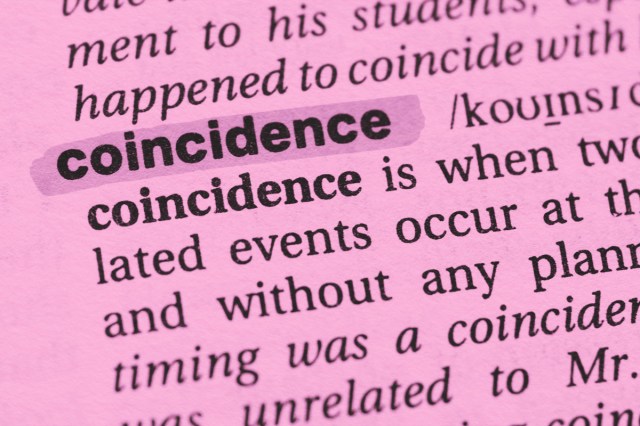
Despite what singer Alanis Morissette told us, rain on your wedding day isn’t actually ironic — it’s simply a coincidence. Although used interchangeably by countless English speakers, coincidence and irony are distinct concepts with different meanings.
Take those viral videos where both partners propose at the same time. Many viewers call the moment “ironic,” but in fact, it’s a coincidence — an unexpected overlap — and not an example of irony. A coincidence occurs when two or more unlikely events happen simultaneously by chance, yet they seem to have some connection. For example, discovering that you and your neighbor share the same birthday is a coincidence. Or when you’re thinking of a song and it starts playing on the radio minutes later — that’s also a coincidence.
Coincidence is frequently confused with situational irony, which involves an outcome that is very different from what one would logically expect. There’s a layer of unmet expectations or a reversal of intentions. Consider this real-life example: During a particularly snowy winter in my hometown, the roof of a roofing company collapsed under the weight of snow — textbook situational irony. Other examples include a fire station catching fire or a tailor wearing an ill-fitted suit.
That said, Merriam-Webster notes the word “ironic” has long been applied to curious or coincidental events. While some grammarians argue against this usage, modern dictionaries now acknowledge it as an evolving example of the rhetorical device. However, if you’re aiming for precision, knowing the difference is key: If the outcome defies expectations by proving the opposite, it may be an ironic twist. But if it’s merely an unlikely overlap, it’s just a coincidence.

















